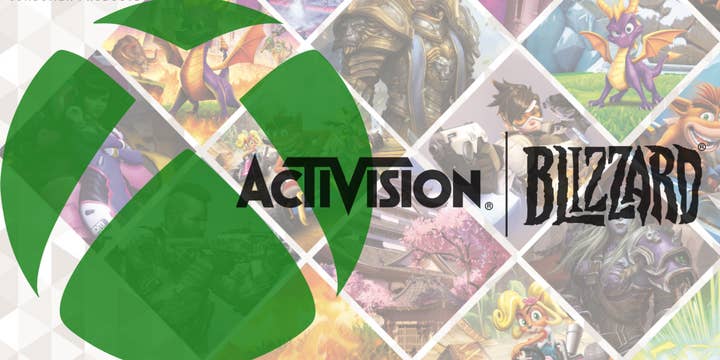Microsoft welcomes CMA U-turn on Activision deal, Sony decries "irrational" decision
Meanwhile, university professor tells UK regulator cloud gaming is "not a distinct market"
Sign up for the GI Daily here to get the biggest news straight to your inbox
Microsoft and Sony have responded to the Competition and Market Authority's revised findings that the former's purchase of Activision Blizzard will not harm competition in the console space.
The CMA said last month that making Activision's games, including Call of Duty, exclusive to the Xbox ecosystem would be "significantly loss-making under any plausible scenario" for Microsoft.
The UK regulator has now published responses from the two platform holders, with Microsoft welcoming the addendum to the original provisional findings.
"Microsoft has been clear since the announcement of the merger: it has no intention to withhold or degrade access to Call of Duty or any other Activision content on PlayStation," the company wrote.
"Such a strategy would be in direct contrast to the interests of gamers in the UK and around the world. Rather than limit choice or access, Microsoft intends to use the merger to bring more games to more people on more platforms and devices."
Sony, meanwhile, said the CMA's reversal of its position is "surprising, unprecedented, and irrational," spending much of its 11-page response detailing the errors it believes the UK regulator made in calculating the lifetime value of an average gamer for either platform.
"SIE respectfully submits that the addendum does not justify the CMA’s U-turn on the consoles theory of harm," the company wrote.
Sony claimed the model the CMA used was biased towards finding that Microsoft had no incentive to withhold Activision's games from PlayStation, and ignores "without sound reason" the analysis of other evidence in the provisional findings regarding Microsoft's incentives.
It added that the addendum's discussion about whether Microsoft would withhold games is "based on pure speculation, rather than evidence."
"To reach a robust decision, the CMA should revisit its analysis of Microsoft’s incentives and partial foreclosure, correcting for the errors identified in this paper," the PlayStation response concluded.
While the CMA no longer believes Microsoft's ownership of Activision Blizzard would substantially lessen competition in the console space, it maintains its concerns around cloud gaming and Activison's portfolio giving Microsoft a distinct advantage in this space.
Microsoft reiterated that it has proposed remedies to assuage this concern, including licensing out Xbox and Activision Blizzard games to other cloud gaming services, as it has already done in ten-year deals with Nvidia, Boosteroid and Ubitus.
"Not only does this show that Microsoft has no ability to withhold Activision content from rival cloud gaming services (given the presence of legally binding and enforceable agreements with these providers), it is also clear evidence of Microsoft’s intention not to withhold Activision content from other cloud gaming services," the Xbox firm wrote.
"Any analysis of both Microsoft’s ability and incentive should be updated accordingly to reflect this development. Simply put, the CMA has found no incentive to withhold Activision content in relation to console, and the evidence shows it should reach the same conclusion in relation to cloud game streaming."
In a document published alongside these responses, Joost Rietveld – associate professor of Strategy and Entrepreneurship at the University College London's School of Management – observed that there is "significant ambiguity as to what exactly cloud gaming is."
Rietveld argues that cloud gaming is "not a distinct market" but instead refers to four types of gaming service that each rely on cloud streaming technology:
- Cloud gaming as a feature, as seen on Xbox Game Pass
- Cloud gaming as a complement, such as Nvidia's GeForce Now and Boosteroid
- Cloud gaming as an input, as with Ubitus and GameStream
- Cloud gaming as a platform, with examples including Amazon Luna and Blacknut
In his conclusion, he wrote: "Consumers' willingness-to-pay for standalone cloud gaming services apparently is low and this is perhaps the strongest indication that cloud gaming should not be considered a distinct market.
"Cloud streaming is a potentially promising distribution method that will very likely continue to be used and relied upon to various extents by different companies with different offerings aimed at a diverse set of customers that can be both end users and business-to-business customers. It behooves the CMA – and other agencies – to view it as such."
Sign up for the GI Daily here to get the biggest news straight to your inbox

